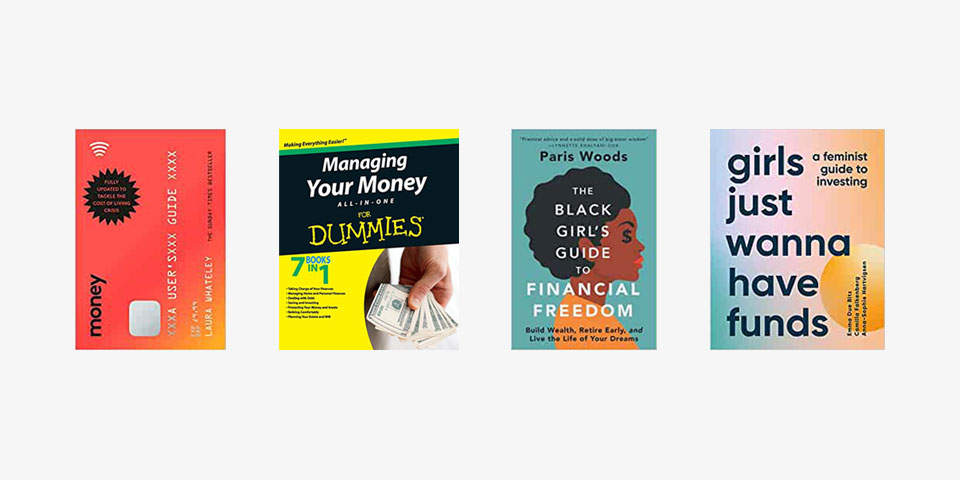What is financial wellbeing and what does it mean to you?

In recent years, self-care has hit the mainstream. We are encouraged to take active steps to look after our physical and mental wellbeing. Conversations that were once niche – how to meditate, whether to intermittently fast or try cold water swimming – are suddenly everywhere. Yet there is an equally important type of self-care, one that doesn’t involve saunas or squats.
Taking care of our finances is essential for our wellbeing, but achieving it is not as straightforward as simply ‘having enough money’. Stefani Williams from Holden & Partners explains, “Genuine financial wellbeing is holistic. That means putting yourself in control of your finances across all areas of life. Crossing your fingers and hoping it will work out is not a healthy solution. Actively planning enables your hopes and dreams to come true, whilst preparing you for life’s harder scenarios. And when you’ve got that organised, it helps you relax and enjoy the present.”
The economy and cost of living crisis are in the news daily. Even if you’re not faced with ‘heat or eat’ decisions, anxiety and questions about the future may niggle away at you. Am I still on track to meet my life goals? What impact is inflation having on my savings? Should I be paying more into my pension?
If you’d like to feel calmer and more confident about your finances, then read on…
We recommend that you should always speak to a financial adviser to ensure that any actions are appropriate for your circumstances.
How can you gain financial well-being?
It doesn’t need to be a chore
Along with booking that routine health check at the doctors, sorting your finances can become another boring task on your to-do list. However, when you do take charge, you’ll realise the benefits. It feels good. Financial wellbeing comes from a position of action and power. It will bring you confidence, reassurance, and peace of mind today and into the future.
Be empowered

Often, a lack of knowledge creates worry. The financial world can certainly be confusing and full of jargon. There are two ways to grow your confidence, both of which we’d recommend. Firstly, educating yourself will give you a great foundation for sound financial decisions. The following books are well worth a read:
- Money: A User’s Guide, by Laura Whateley
- Managing Your Money All-in-One, by the experts at Dummies
- The Black Girl’s Guide to Financial Freedom: Build Wealth, Retire Early, and Live the Life of Your Dreams, by Paris Woods
- Girls Just Wanna Have Funds: A Feminist Guide to Investing, by Camilla Falkenberg, Emma Due Bitz and Anna-Sophie Hartvigsen
And secondly…
Seek expert advice
Whilst it makes sense to understand as much as you can about your finances, there is no substitute for expert input. It will take the weight off your shoulders, especially in a time of economic uncertainty. The right support can help ensure you protect your wealth and family from risks, and mitigate tax, including inheritance tax.
Recent years have seen a surge in people turning to social media sites such as TikTok and Reddit for financial advice. However, whilst qualified financial advisors could be held liable for misleading claims, there is no regulation of social media influencers. Seek an FCA approved advisor and, for the gold standard, a chartered firm.
Be your own financial future friend

Mindfulness gurus might tell you to live in the moment, but that might not be great advice for your financial decisions! Balancing your needs and happiness today with your aspirations for the future will be something your future self will thank you for. What are your dreams and goals? What might happen to your family if you were made unemployed, became ill or died? Once you have plans in place for worst case scenarios, you can stop worrying and focus on the exciting things you want to enjoy and work towards.
ISAs are a brilliant first step
For an easy wellbeing win, consider setting up an Individual Savings Account (ISA). It’s a straightforward and tax-efficient way to save because any income from investments is tax free, as are the capital gains. A hassle-free way to ensure that saver’s glow is to set up a standing order to your ISA on the day you get paid. Currently, you can pay £20,000 annually into your ISA.
Those under 50, saving for their first home or retirement, could also benefit from saving into a lifetime ISA. Subject to certain criteria being met, the Government pays an additional 25% on the amount invested up to an allowance of £4,000 in this tax year (which forms part of the overall £20,000 allowance).
Develop healthy spending strategies
It really pays to take a few minutes to scrutinise your relationship with money. Where are your downfalls? Is it late night browsing leading to purchases you regret? Or being caught out by large expenses that end up on the credit card? Once you know your triggers, you can take steps to eliminate them (such as deleting shopping apps or sinking funds so that you gradually save for big costs, like holidays or house repairs). A book that helps you address issues such as unhelpful spending habits, self-worth and consumerism is Five Steps to Financial Wellbeing: How changing your relationship with money can change your whole life by Clare Seal.
It’s not a one hit wonder

One trip to the gym does not a fit person make… and one flurry of financial management will be a good start but will not create the long-term financial wellbeing you hope for. Why not stay on track by scheduling a six-monthly finance check? Making sure that one of these is a month or two ahead of the 5th April new financial year will enable you to use allowances effectively. Check out this end of tax year to-do list. High net worth individuals must take this even more seriously, especially with imminent changes to capital gains tax.
Sustainable well-being
For many people, the deepest sense of financial wellbeing comes from knowing you have taken control of your money alongside ensuring it works hard to benefit communities and the environment. Sustainable investing is an exciting way of achieving this. It makes financial sense too: our own research and independent studies reveal that over the longer term you do not have to sacrifice returns when investing in a sustainable portfolio.
With a little investment of time now, you could find you are set up for a lifetime of financial wellbeing, bringing peace of mind and the confidence to focus on your goals.
Look out for our next article which answers some FAQs about financial planning.


